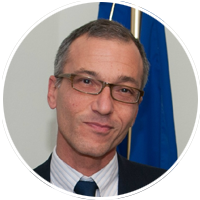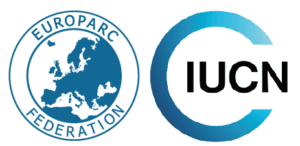[WEBINAR] Towards a NO-Plastic Sea: EU policies and Marine Protected Areas actions
This webinar on the 10th of November at 11 AM CET will look at EU policies and Marine Protected Areas actions
- Tuesday, 10th of November 2020
- 11:00 AM CEST
- participation is free but registration is needed. Register here.
Within the context of the European Green Deal, and in particular the Circular Economy Action Plan and Biodiversity Strategy, this webinar will explore Marine Protected Areas and plastic pollution. We will take a closer look at some of the issues of addressing plastic pollution in Marine Protected Areas, through a number of case studies across Europe. The session will bring together EU policy makers, European MPA managers, representatives from the private sector, and other stakeholders, to discuss the challenges and potential ways forward. The session will serve as an opportunity for the exchange of knowledge, ideas and recommendations about the implementation of the relevant elements under the European Green Deal.
Agenda:
Welcome from EUROPARC, introducing the topic from the Protective Areas perspective
By Fernando Pinillos, Communications and IT Officer
Welcome from IUCN from the plastic challenge perspective
By Alberto Arroyo Schnell – International Union for Conservation of Nature (IUCN).
Setting the scene: EU policies against marine litter and the Green Deal perspectives
By Michail Papadoyannakis – European Commission, DG ENV.
Case Study: The Plastic Waste-Free Islands initiative
By Joao Sousa – International Union for Conservation of Nature (IUCN).
The Plastic Waste-Free Islands initiative (PWFI) is part of IUCN’s global Close the Plastic Tap Programme. Working in three regions, the Caribbean, the Mediterranean and Oceania, the initiative’s overarching goal is to drive the circular economy agenda forward and to reduce plastic waste generation and leakage from islands. Joao Sousa’s presentation will focus on the Mediterranean region, exploring in particular the example of Menorca, which was declared a Biosphere Reserve by UNESCO in 1993.
Case Study: The MEDSEALITTER project: Developing Mediterranean-specific protocols to protect biodiversity from litter impact at basin and local MPAs scales
By Odei García-Garin – University of Barcelona/ Interreg MEDSEALITTER project.
The MEDSEALITTER project developed standard monitoring protocols to protect biodiversity from marine litter. The monitoring of marine litter is essential to evaluate risks and mitigation policies. Furthermore, to understand the possible sources and pathways through the environment and to promote new legislative initiatives against plastics. The MPA managers are the key component to conduct a regular marine litter monitoring within the Marine Protected Areas.
Discussion and other perspectives.
All participants will have the opportunity to raise their comments and questions, and to hear the perspectives from the private sector and other stakeholders.
Get to know the speakers!

Michail Papadoyannakis has worked in the European Commission on research, industrial policy and environmental issues, covering also project management and international relations. Within the Environment Directorate General he has been dealing mainly with issues of waste management, hazardous substances and, since 2009, marine environment issues focusing on the implementation of the EU Marine Strategy Framework Directive, links with Regional Seas Conventions around Europe and marine litter.

Joao Sousa is a Marine Project Officer at International Union for Conservation of the Nature (IUCN) where he focuses on collaborative solutions to mitigate plastic debris in the world’s oceans. This involves coordinating research to inform policy, creating platforms to encourage innovation and sharing of best practices, and cooperating with industry to change behavior. Joao also works on conservation and mitigation for the oil and gas industry in the North Sea (decommissioning platforms) and private sector engagement for best practices in the production, extraction and transformation sectors in Mozambique.

Odei García-Garin is a biologist PhD candidate currently working at University of Barcelona on the occurrence, distribution and abundance of marine litter and its impact on marine fauna. He is focused on analysis of microplastics and plasticizers, techniques of remote sensing and monitoring of marine vertebrates.
This webinar is organised by
